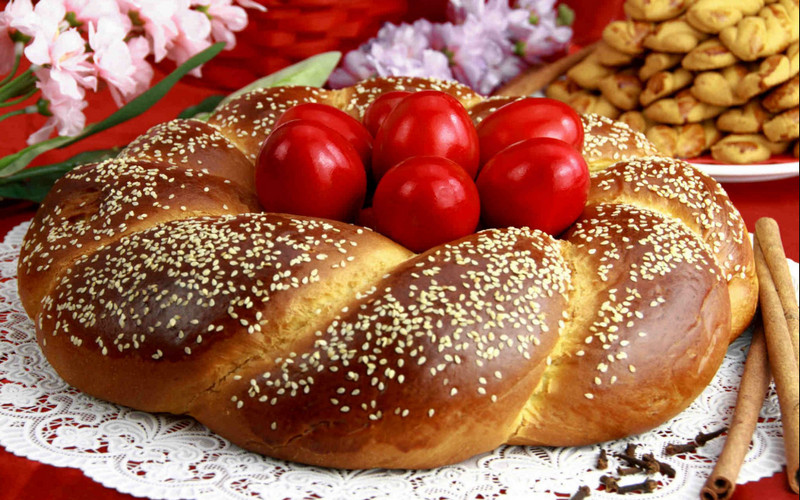Easter is a sacred and joyous celebration for Christians worldwide, commemorating the resurrection of Jesus Christ. In Greece, Easter holds special significance, with a unique blend of religious customs and cultural traditions. Among these customs, the cracking of red eggs stands out as a symbol of renewal, unity, and spiritual meaning. In this article, we will delve into the rich symbolism and history behind the Greek tradition of cracking red eggs during Easter.
The Significance of Red
Red is a color that carries deep symbolic meaning in Greek culture, often associated with life, love, and strength. The choice of red eggs for Easter is rooted in this symbolism, and it represents the blood of Christ shed on the cross. This connection between the color red and Christ’s sacrifice forms the foundation of the tradition.

Symbol of Resurrection
Easter is fundamentally a celebration of the resurrection of Jesus, symbolizing new life and the triumph of light over darkness. The red egg, with its vibrant hue, embodies this theme of rebirth. Eggs, in general, have been a symbol of life and fertility since ancient times. By cracking red eggs on Easter, Greeks emphasize the idea that through Christ’s resurrection, humanity has been granted the gift of eternal life.
The Process of Dyeing
To create red eggs for Easter, Greeks follow a meticulous process of dyeing that involves natural ingredients. The most common method is to use red onion skins, which impart a beautiful crimson hue to the eggs. These onion skins are boiled together with the eggs in a pot of water, creating a rich, earthy color. The longer the eggs are boiled, the deeper the shade of red they acquire. The final step involves polishing the eggs with a cloth and a bit of olive oil to achieve a glossy finish.
The Game of Cracking
The red eggs are an integral part of the Easter meal, often placed at the center of the festive table. After the meal, a spirited game ensues, where family and friends take turns trying to crack each other’s eggs. The rules are simple: one person holds their egg, while another taps it gently with their own. The goal is to crack the opponent’s egg without breaking one’s own. The owner of the last uncracked egg is declared the winner and believed to have good luck for the year.
Symbolism of the Egg Cracking Game
The game of cracking red eggs carries its own symbolism. It represents the idea of overcoming challenges and difficulties in life, just as Christ overcame death. The unbroken egg symbolizes strength and resilience. It also serves as a reminder that, despite the trials and tribulations of life, there is always hope for a new beginning and a brighter future.

A Sense of Community and Togetherness
The tradition of cracking red eggs fosters a sense of community and togetherness among Greeks during Easter celebrations. It brings family and friends around the table, encouraging laughter, bonding, and the sharing of stories. It’s a time when generations come together, passing down the tradition from elders to the younger members of the family.
Blessing and Sharing
Red eggs also play a role in the exchange of Easter greetings and blessings. When two people crack their eggs together, one of them says, “Christos Anesti” (Christ is Risen), and the other responds with “Alithos Anesti” (Truly, He is Risen). This exchange reinforces the religious significance of Easter and the belief in Christ’s resurrection.

Historical Roots
The tradition of cracking red eggs on Easter in Greece has deep historical roots. It is believed to have originated in the early Christian period, but it may have even older pagan origins, as the egg was a symbol of fertility in ancient Greek and Roman cultures. Over time, the tradition became intertwined with Christian beliefs, making it a unique blend of old and new customs.
The tradition of cracking red eggs during Greek Easter is a symbol of faith, hope, and the enduring spirit of the Greek people. Its rich symbolism, rooted in the resurrection of Jesus Christ, reflects the core values of Easter. Beyond its religious significance, the act of cracking red eggs brings families and communities together, fostering a sense of unity and togetherness. This beloved tradition continues to be a cherished part of Greek culture, passed down from generation to generation, reminding all who participate of the eternal message of Easter – the triumph of life over death and the promise of renewal.





